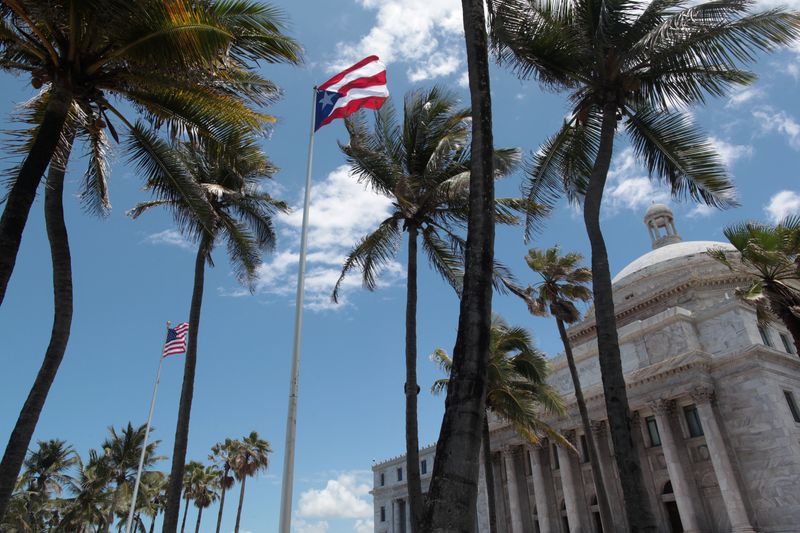By Maria Chutchian
(Reuters) - The judge overseeing Puerto Rico's nearly five-year-long debt restructuring process has approved a debt adjustment plan that is intended to revitalize the commonwealth's economy and reduce its $135 billion in liabilities.
U.S. District Judge Laura Taylor Swain approved the plan in an order filed on Tuesday, bringing nearly half a decade of litigation over Puerto Rico's financial standing to a close and marking a historic moment for the largest-ever U.S. municipal debt restructuring.
Puerto Rico filed for protection under a bankruptcy-like law, known as Title III, in May 2017. Its $135 billion in liabilities included more than $55 billion in underfunded pension obligations. The debt adjustment plan, proposed by a federally appointed financial oversight board, incorporates settlements among an array of creditors and aims to encourage new investments to aid the island's economy.
The plan reduces $33 billion in bond debt to $7 billion and cuts overall debt by 80%, according to the board. It also includes protections that limit how much debt Puerto Rico can take on in the future.
The case has racked up approximately $1 billion in legal fees.
Swain noted in Tuesday's decision that the plan has "broad but not universal support," with many public workers and retirees, among others, taking issue with certain aspects.
The oversight board has said that under the plan, government retirees are still in line to receive their full pensions at their current levels. The plan freezes defined-benefit retirement programs that cover active teachers and judges and replaces them with defined contribution plans and enrollment in social security.
The board said in a statement on Tuesday that it welcomed Swain's decision but that the commonwealth "needs to continue to reform itself to ensure a prosperous future."
Puerto Rico piled up unsustainable levels of debt in the years leading up to 2017. In 2016, the federal government enacted the Puerto Rico Oversight, Management and Economic Stability Act, which created a process for the territory to restructure its debt.
The commonwealth's troubles reached new levels just a few months after it filed for Title III protection as Hurricane Maria ravaged the island, killing about 3,000 people. And in 2019, its governor resigned amid protests over a scandal involving offensive chat messages and government corruption that rocked the island.
The debt adjustment plan is expected to go into effect by March 15. The oversight board will remain in place until Puerto Rico has had four consecutive years of balanced budgets.

The board's executive director, Natalie Jaresko, said on Tuesday that with the plan approved, she expects a "substantial increase" in government spending on public services.
(This story corrects 7th paragraph to say government retirees will receive full pensions at current levels and the plan freezes retirees' defined benefit plans for active teachers and judges and replaces them with defined contribution plans and enrollment in social security, not that most retirees will receive full pensions and not that the plan terminates defined benefit programs)